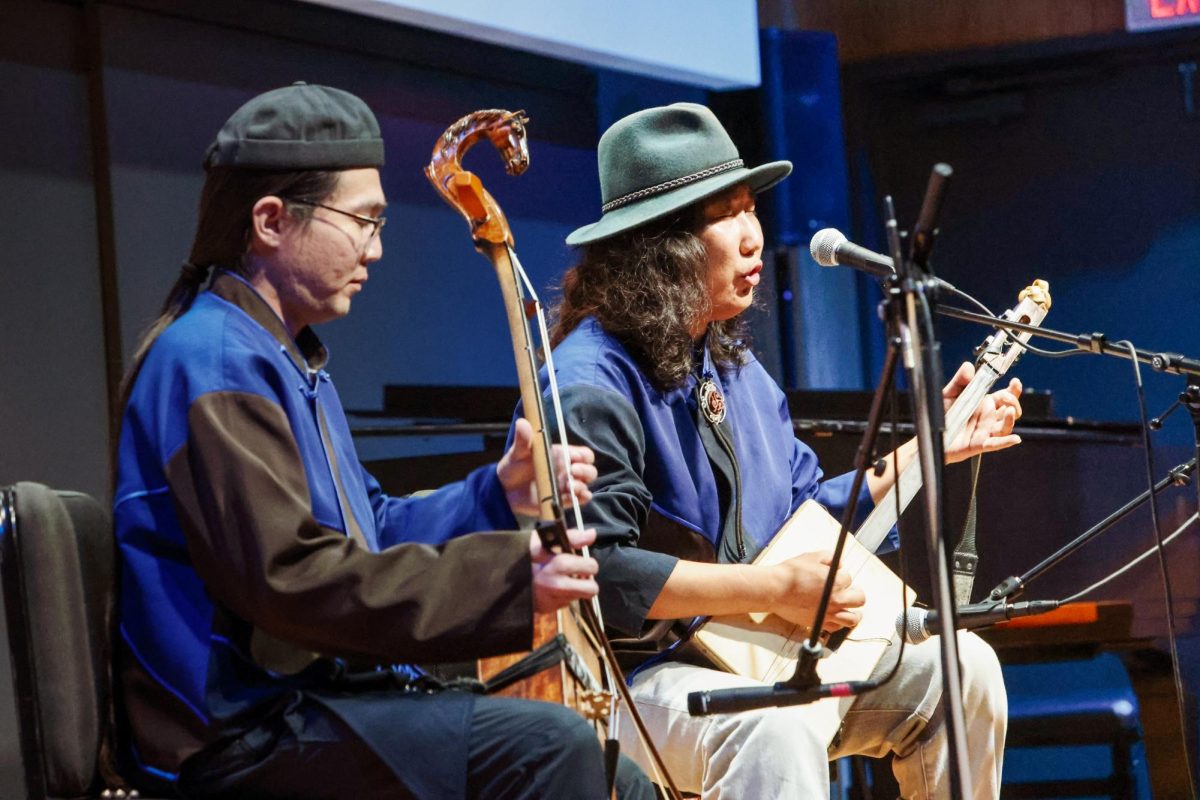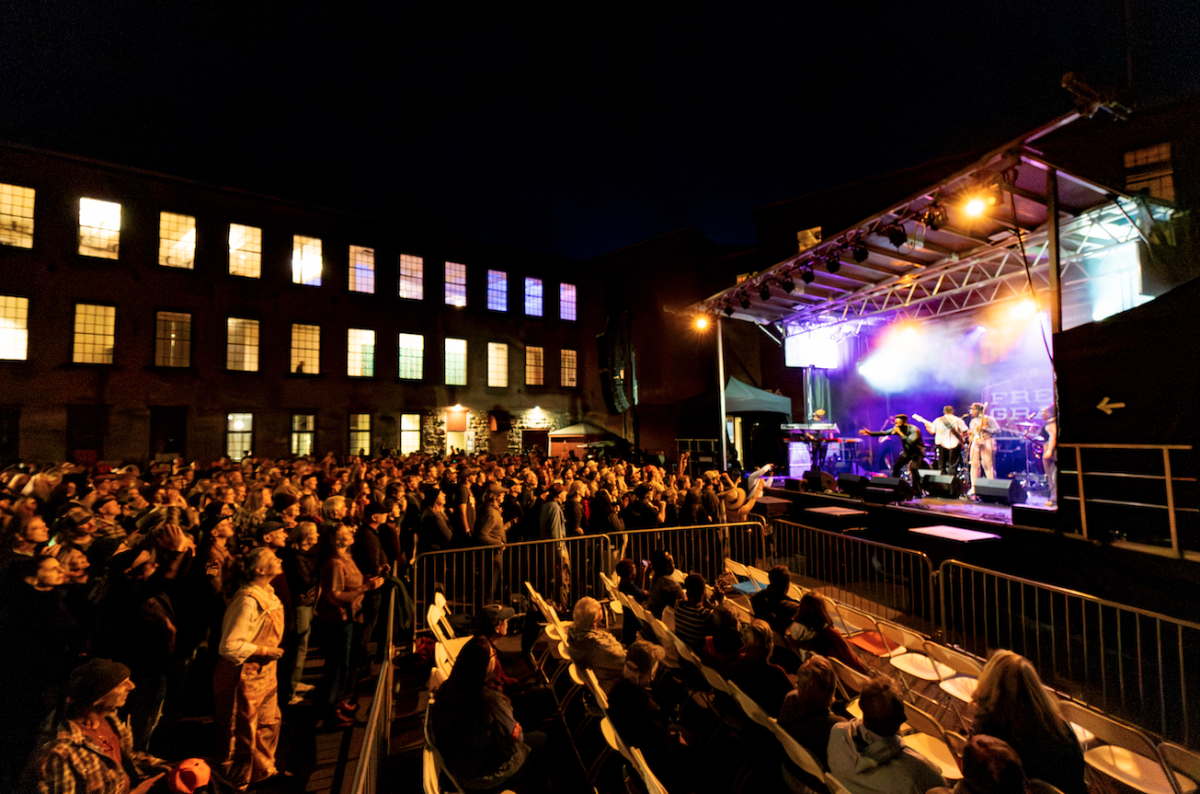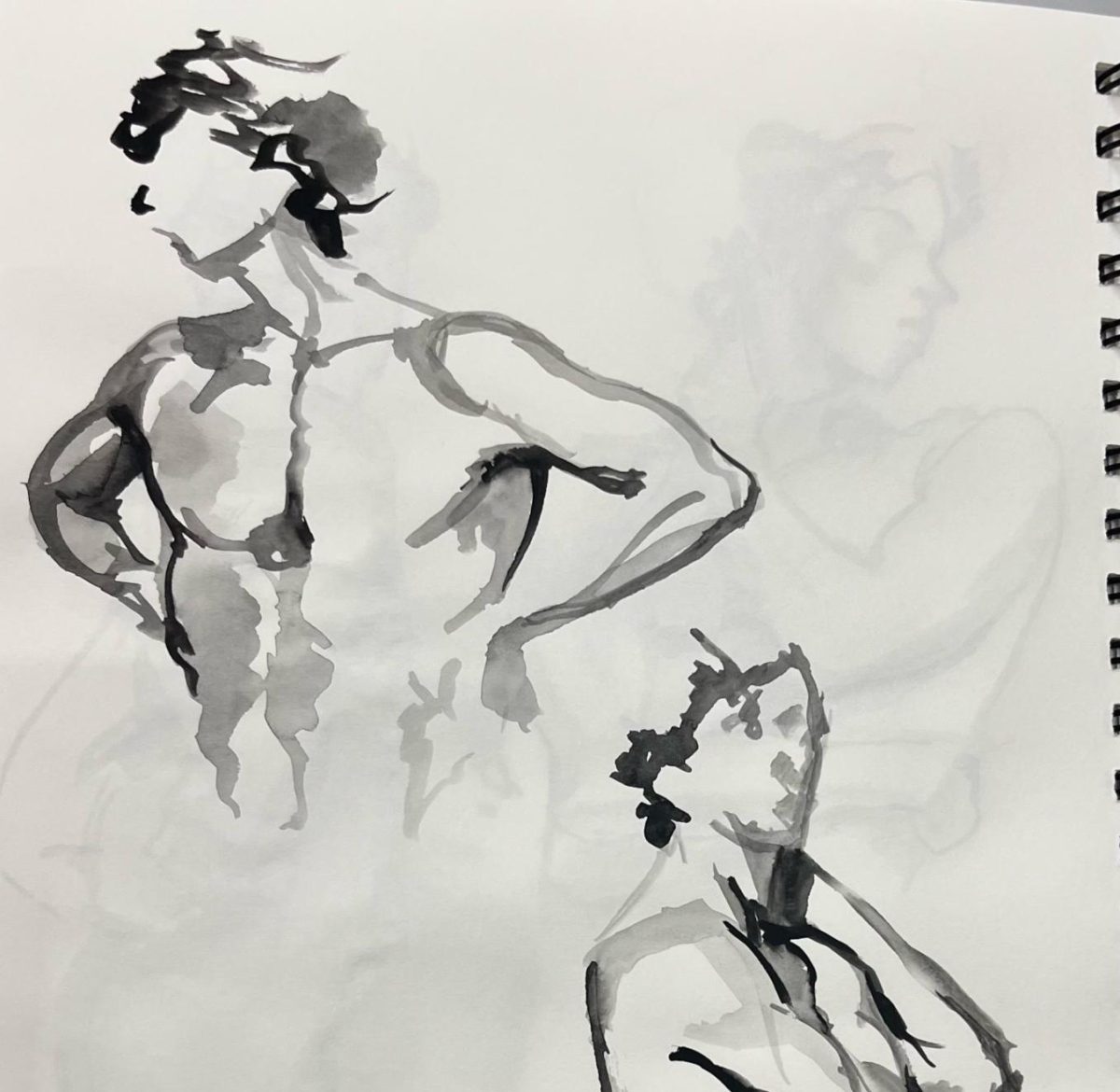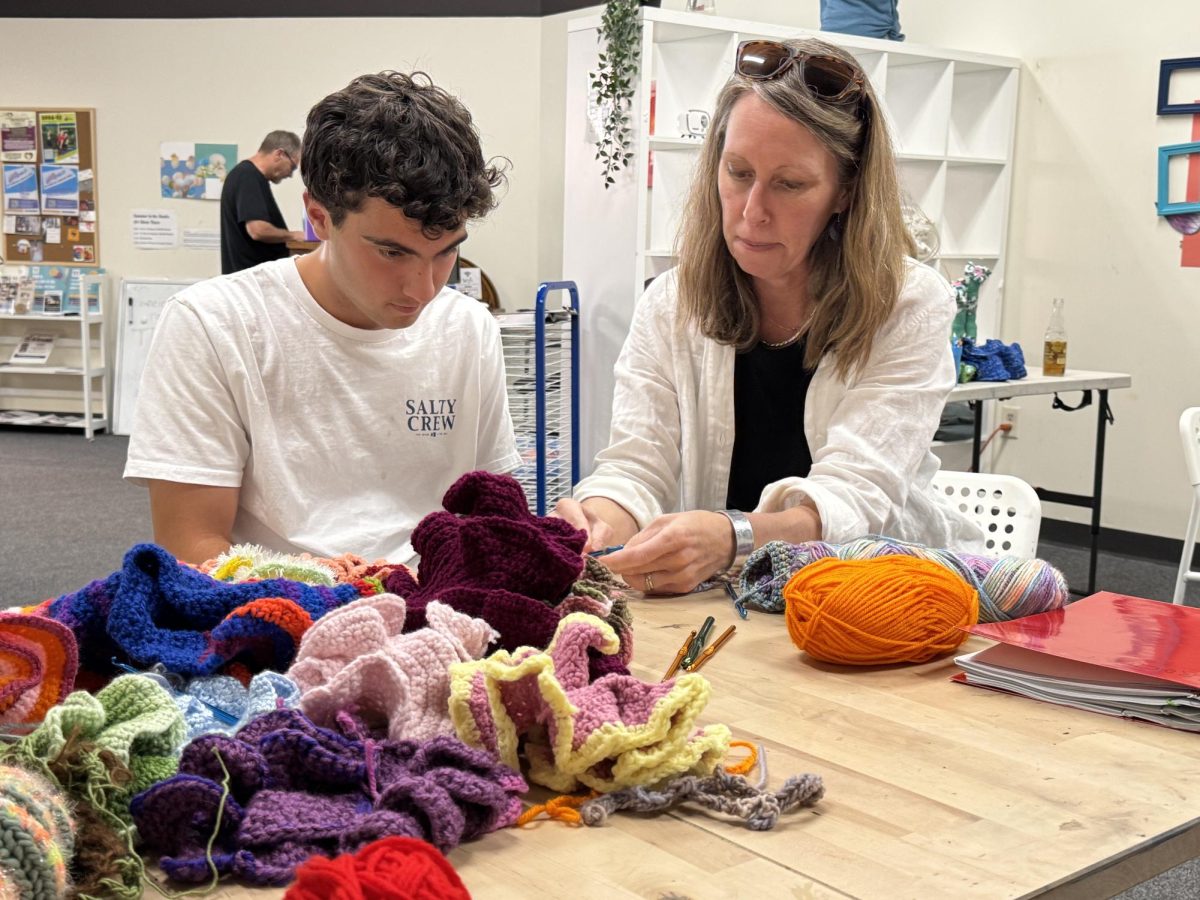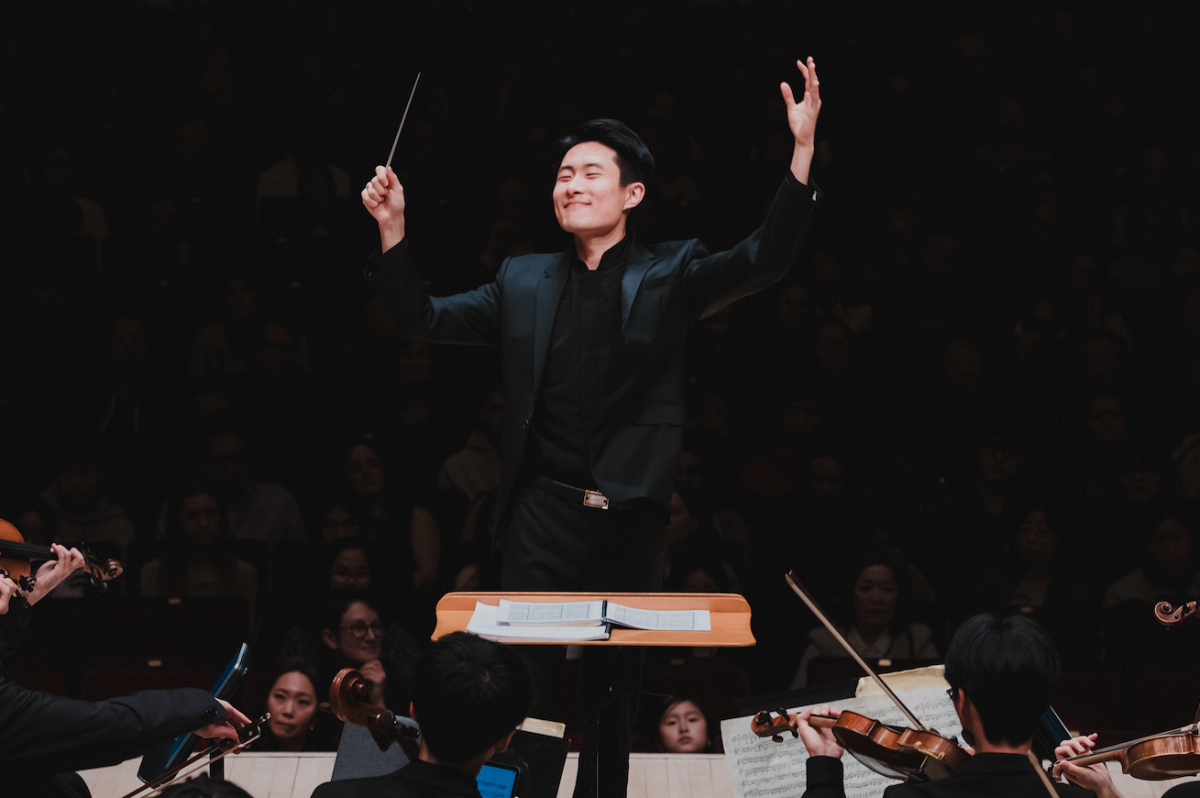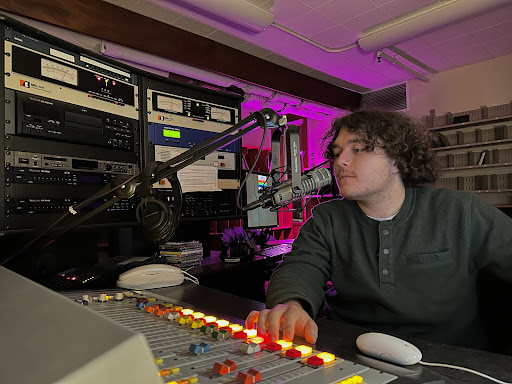
WCFM recently finalized its schedule for the fall semester — with roughly 119 shows each week. Student DJs play music from the broadcasting studio in Prospect House every weekday from 7 a.m. to 2 a.m. Each DJ brings their own style and perspective to the microphone, with some so unique one can’t help but ask: “How did they come up with that?”
General Manager Josh Picoult ’24 joined WCFM his sophomore year and was immediately struck by the thousands of vinyl records that the station has collected since the 1940s. “I was immediately intrigued by the concept of using them for a show,” he said. He has hosted his show “The Turntable Time Machine” ever since, which airs on Fridays at 9 p.m.
The theme for Picoult’s show was inspired by Parliament’s 1975 album Mothership Connection. The album opens with an announcement from Parliament saying, “Do not attempt to adjust your radio, there is nothing wrong… we will return it to you as soon as you are grooving.”
Just as Parliament uses its Mothership to connect radio audiences with funk music over the airwaves, Picoult hopes to play funk and soul from the 1970s for Williamstown. “For one hour, you’re not in Williamstown but at the Sound Factory in Hollywood, California in 1973 with Bobbi Humphrey,” he said.
WCFM member Meyer Leff ’26 hosts his show, “Real Life,” on Tuesdays at 10 p.m. He hopes to “collect the ways that people experience their lives,” he said. “I try to make sure that the songs I play are ways that I feel on a daily basis.”
Leff initially planned to host a show called “People in Situations.” However, he realized that creating an “encyclopedic knowledge of everything” might not be feasible, so he shifted to the concept of documenting “Real Life.” Leff’s preparation for his show involves identifying a common theme in the music he’s listened to recently and then basing that week’s show around that theme to create a playlist that resonates with people.
“The project of curating your show every week is one of the best parts about having a thematic show or show that you design and run,” Picoult said. He prepares for “The Turntable Time Machine” by sifting through some of the records in the stacks every Friday before his slot.
Theo Detweiler ’24, who hosts “Arctic Airwaves” on Mondays at 11 p.m., prepares for his show with more historical research than most DJs. When he was a sophomore, Detweiler hosted a show called “Hold the Beeph,” which paid homage to his veganism. He then shifted to playing music exclusively from the far north after taking a class at WEPO on the 19th-century folk revival in Europe and later traveling to Sweden and Iceland.
Although they enjoy crafting their unique themes, some WCFM hosts said doing a solo show, as opposed to one with a co-host, presents particular challenges. While co-hosts can chat with each other during songs, solo hosts can only stare at the listener count. “There’s more of an idea that the connection is between the host and the listener, instead of the co-host and the co-host,” Leff said. “On a solo show, you have to be more sure of what you’re going to say.”
Lola Weber ’26 started as a co-host for a radio show titled “Picklebacks!” as a first-year but now has her own show, “Minxy Mixes,” which airs every Monday at 5 p.m. Becoming a solo DJ adds “so much more responsibility in terms of picking a focus for music,” she said. Her show got its name after Weber made a Spotify playlist dedicated to what it means to be a minx, and she ran with the idea. Weber said that she plays what feels good in the moment, picking up inspiration from other college radio stations and WCFM radio show hosts.
Hosts offered advice to other students who may be looking to start their own radio show. “It’s helpful to start with a message or one specific thing that you’re trying to do,” Leff said.
“Anyone can be a DJ — this is what college radio is all about,” Picoult added.




